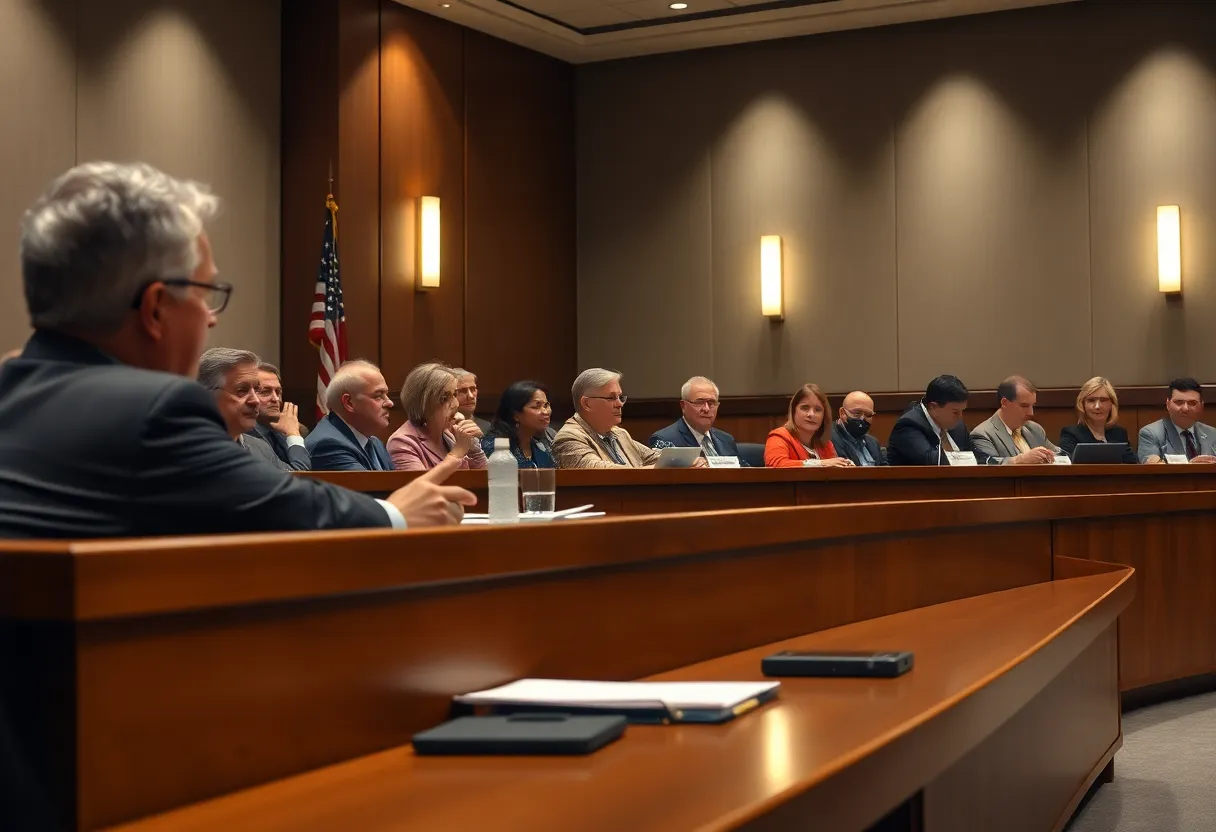News Summary
Mayor Todd Gloria has proposed dissolving nonprofit groups managing San Diego’s parking districts due to alleged mismanagement and inappropriate spending. If approved by the City Council, $1.8 million in parking meter revenue would be redirected to essential neighborhood improvements like sidewalk repairs and streetlight fixes. While city officials cite serious concerns, nonprofit leaders argue the claims are exaggerated. The proposal raises questions about accountability and impacts on local businesses amidst community concerns about transparency and infrastructure needs.
San Diego – Mayor Todd Gloria has proposed the dissolution of nonprofit groups that oversee community parking districts in San Diego, following an internal review that cited allegations of mismanagement, contract violations, and inappropriate spending by these organizations. If the City Council approves the proposal, approximately $1.8 million in parking meter revenue would be redistributed towards essential neighborhood improvements such as fixing sidewalks, streetlights, and potholes.
The review led by Gloria’s office revealed serious concerns about the operations within the parking districts, with Craig Gustafson, a deputy director in the city’s Transportation Department, confirming widespread mismanagement among all the districts. Issues identified included failure to conduct competitive bidding, conflicts of interest, unreasonable fees, and a lack of proper invoicing for work performed. Additionally, funds intended for neighborhood improvements have been reportedly misused for non-essential expenses, resulting in inadequate resources for critical projects.
San Diego currently has four established parking districts: downtown, Pacific Beach, mid-city focused on El Cajon Boulevard, and uptown, which includes Hillcrest, Bankers Hill, University Heights, and Mission Hills. These districts were originally created in 1997 to manage parking meter funds and oversee neighborhood projects. However, a previous review had already reduced the parking districts’ share of meter revenue from 45% to 15% and mandated that board memberships include broader diversity.
Despite the mayor’s stance, leaders of the nonprofit groups argue that the claims of mismanagement are exaggerated or not entirely accurate. Some community leaders acknowledged that there may have been inefficiencies in spending but contend they have successfully secured approval for various neighborhood projects funded by parking meter revenues. They expressed concern that the mayor’s actions might be financially motivated, aimed at addressing a budget deficit rather than resolving legitimate operational issues.
Critics of the proposal argue that the mayor’s efforts to take control of parking revenue are more about generating funds rather than effectively addressing the mismanagement allegations. They highlight that the county grand jury and the city’s Mobility Board have criticized the districts for a lack of accountability and excess bureaucracy. The grand jury suggested that neighborhood planning groups should take over the responsibilities of the parking districts, rather than the mayor exerting complete control.
Plans under the new proposal indicate that all future revenue from parking meters would be redirected to the city instead of the community organizations. This measure anticipates increases in revenue as parking meter rates rise and the number of meters expands in the city. As part of this shift, projects previously funded by parking district money will now become part of the city’s annual capital improvements budget, subject to public debate.
Community impact has also been a focal point of the discussion, as some parking districts have failed to submit work plans for the upcoming fiscal year beginning on July 1, resulting in proposed expenditures being deemed ineligible by the mayor’s staff. Moreover, changes to parking meter operations, including extended hours and new fees, have sparked concern and criticism regarding potential negative effects on local businesses.
Current issues also highlight the deteriorating infrastructure, with approximately 1,200 streetlights reported out in downtown San Diego, emphasizing the urgent need for redirected funds to address these facilities. Residents have voiced frustration regarding a lack of communication concerning changes to parking policies and surrounding signage in their neighborhoods.
In conclusion, while the city remains committed to using additional revenue for infrastructure improvements and maintenance, it must also navigate community concerns about transparency and the impacts of the proposed changes on local businesses and residents. The outcome of Mayor Gloria’s proposal will ultimately depend on the City Council’s decision and the reactions from the public and affected stakeholders.
Deeper Dive: News & Info About This Topic
HERE Resources
San Diego Implements New Parking Regulations
San Diego Extends Parking Meter Hours and Introduces Sunday Enforcement
Father Detained by ICE Near Elementary School Sparks Outrage
Governor Newsom’s Controversial Redistricting Plan
San Diego City Council Approves Changes to Parking Fees
San Diego Budget Proposal Addresses Community Library and Recreation Needs
Mountain Empire Unified School District Faces Financial Headwinds
Additional Resources
- San Diego Union-Tribune
- Wikipedia: San Diego
- NBC San Diego
- Google Search: parking meter changes San Diego
- Times of San Diego
- Google Scholar: San Diego parking districts
- Fox 5 San Diego
- Encyclopedia Britannica: San Diego
- NBC San Diego
- Google News: San Diego parking meter revenue

Author: STAFF HERE SAN DIEGO WRITER
The SAN DIEGO STAFF WRITER represents the experienced team at HERESanDiego.com, your go-to source for actionable local news and information in San Diego, San Diego County, and beyond. Specializing in "news you can use," we cover essential topics like product reviews for personal and business needs, local business directories, politics, real estate trends, neighborhood insights, and state news affecting the area—with deep expertise drawn from years of dedicated reporting and strong community input, including local press releases and business updates. We deliver top reporting on high-value events such as Comic-Con International, San Diego County Fair, and San Diego Pride Festival. Our coverage extends to key organizations like the San Diego Regional Chamber of Commerce and United Way of San Diego County, plus leading businesses in biotechnology, healthcare, and technology that power the local economy such as Qualcomm, Illumina, and Scripps Health. As part of the broader HERE network, including HEREAnaheim.com, HEREBeverlyHills.com, HERECostaMesa.com, HERECoronado.com, HEREHollywood.com, HEREHuntingtonBeach.com, HERELongBeach.com, HERELosAngeles.com, HEREMissionViejo.com, and HERESantaAna.com, we provide comprehensive, credible insights into California's dynamic landscape.





